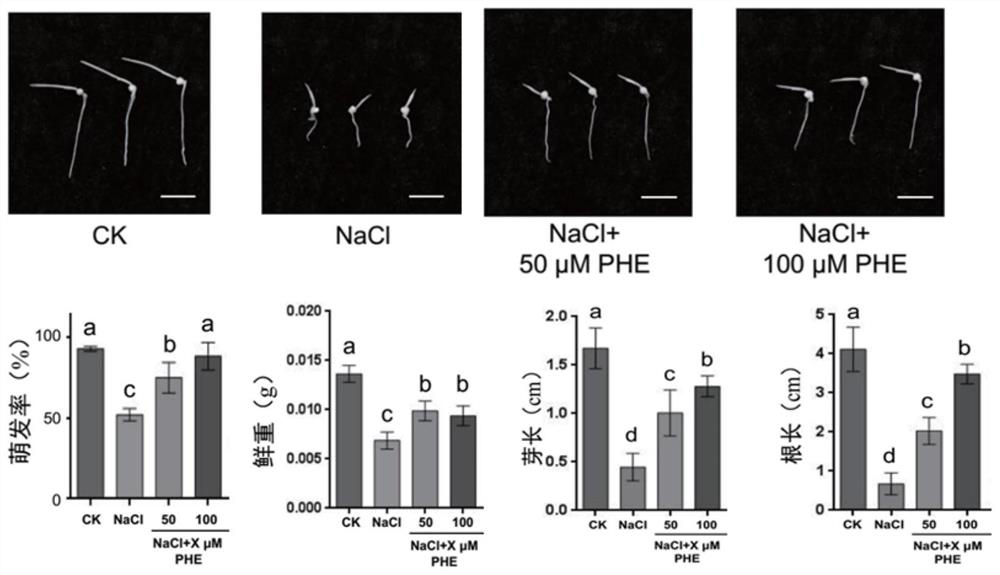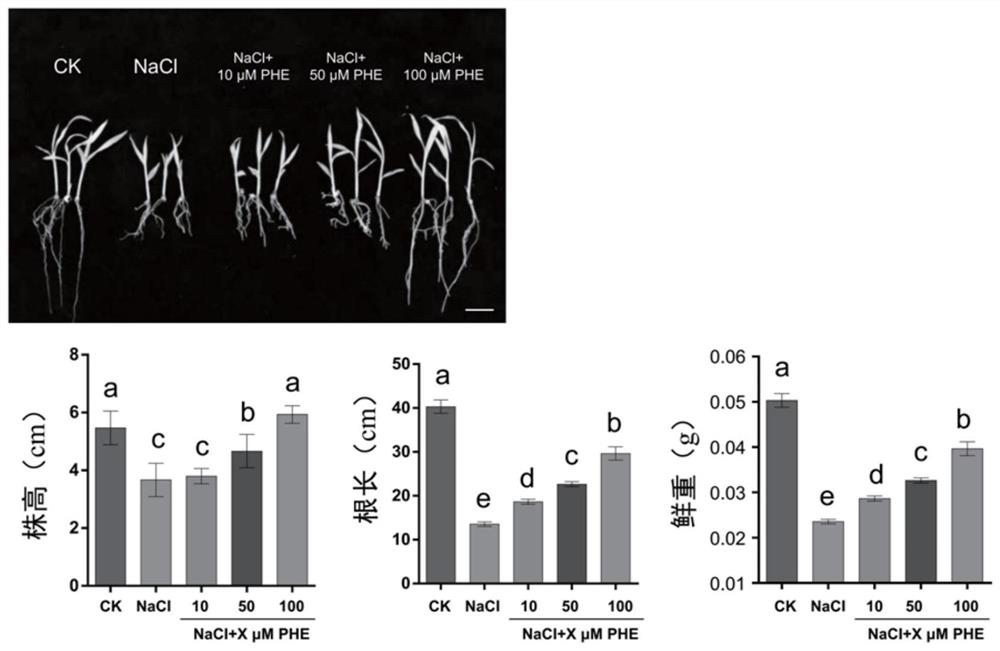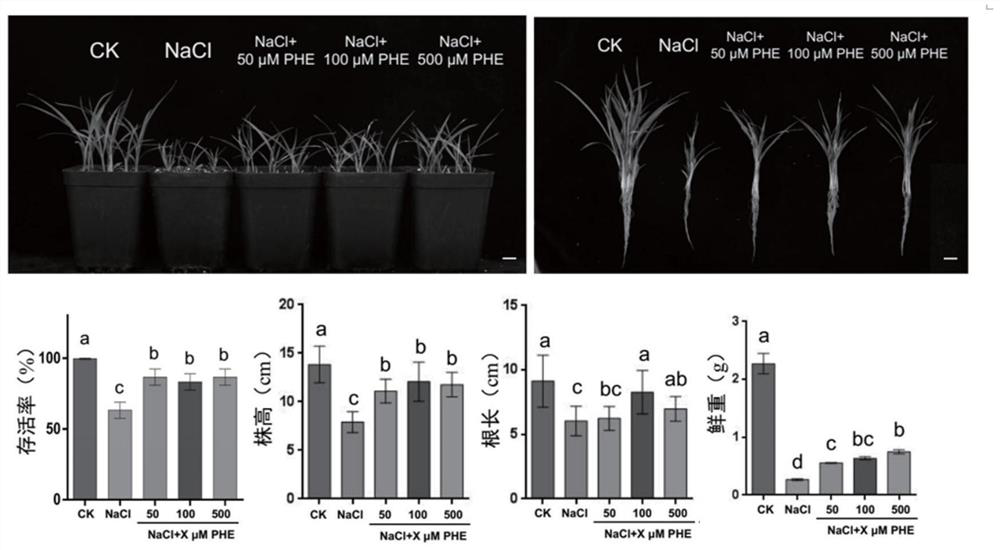Application of Phenidone in Improving Salt Tolerance of Plants
A technology of phenidone and salt tolerance, which is applied in the field of application of phenidone in improving the salt tolerance of plants, can solve the problems of unseen plant stress resistance, so as to improve planting income and salt stress resistance , Concentration setting scientific and reasonable effect
- Summary
- Abstract
- Description
- Claims
- Application Information
AI Technical Summary
Problems solved by technology
Method used
Image
Examples
Embodiment 1
[0032] Embodiment 1: Phenidone can promote millet germination under salt stress conditions
[0033] 1. Prepare 16.219mg of ibuprofen into 100mM mother solution with 1mL of absolute ethanol, and then dilute with water into 50μM and 100μM fenidone solutions respectively, and use it as the subsequent treatment solution.
[0034] 2. Select plump and healthy millet seeds, first disinfect the surface of the seeds with 70% ethanol for 20 seconds, and then wash them with sterile water for 5-6 times. Millet seeds were divided into blank group (CK), control group and experimental group. The seeds of CK group were soaked in water for 12 hours for pretreatment, and the seeds of control group and experimental group were soaked in 150mM NaCl solution for 12 hours for pretreatment. Three groups of parallel experiments were set up in each group, and 80 millet seeds were selected in each parallel. Spread the soaked seeds on a 9 cm glass petri dish with sterilized filter paper placed in advanc...
Embodiment 2
[0036] Embodiment 2: Phenidone can improve the salt tolerance of millet hydroponic seedlings
[0037] 1. Prepare 16.219 mg of ibuprofen with 1 mL of absolute ethanol to prepare a 100 mM mother solution, and then dilute with water to obtain phenidone treatment solutions with concentrations of 10 μM, 50 μM, and 100 μM.
[0038] 2. Select plump and healthy millet seeds, first disinfect the surface of the seeds with 70% ethanol for 20 seconds, and then wash them with sterile water for 5-6 times. Three days after millet germination, select seedlings with consistent growth and spread them on 9 cm glass petri dishes with sterilized filter paper placed in advance, 10 per dish, and 5 mL of treatment solution. Divided into blank group (CK), control group and experimental group, the seedlings of CK group were treated with clear water, the seedlings of control group were treated with 150mM NaCl solution, and the experimental group were treated with 200mM NaCl containing 10μM, 50μM and 100...
Embodiment 3
[0040] Example 3: Exogenous spraying of phenidone can improve the salt tolerance of millet seedlings
[0041] 1. Prepare 16.219 mg of ibuprofen into 100 mM mother solution with 1 mL of absolute ethanol, and then dilute with water to obtain phenidone treatment solutions with concentrations of 50 μM, 100 μM, and 500 μM.
[0042] 2. Choose plump and healthy millet seeds. 15 millet seeds were planted in each black seed tray, and after the millet germinated for 3 days, 9 seedlings with consistent growth were selected, and the remaining seedlings were removed with tweezers simultaneously. The 9 seedlings were treated after continuing to grow for 3 days. The seedlings of the CK group were irrigated with clear water, and the seedlings of the control group and the experimental group were irrigated with an equal amount of 200mM NaCl solution. Then, the seedlings of the CK group and the control group were sprayed with clear water, and the seedlings of the experimental group were sprayed...
PUM
 Login to View More
Login to View More Abstract
Description
Claims
Application Information
 Login to View More
Login to View More - R&D
- Intellectual Property
- Life Sciences
- Materials
- Tech Scout
- Unparalleled Data Quality
- Higher Quality Content
- 60% Fewer Hallucinations
Browse by: Latest US Patents, China's latest patents, Technical Efficacy Thesaurus, Application Domain, Technology Topic, Popular Technical Reports.
© 2025 PatSnap. All rights reserved.Legal|Privacy policy|Modern Slavery Act Transparency Statement|Sitemap|About US| Contact US: help@patsnap.com



